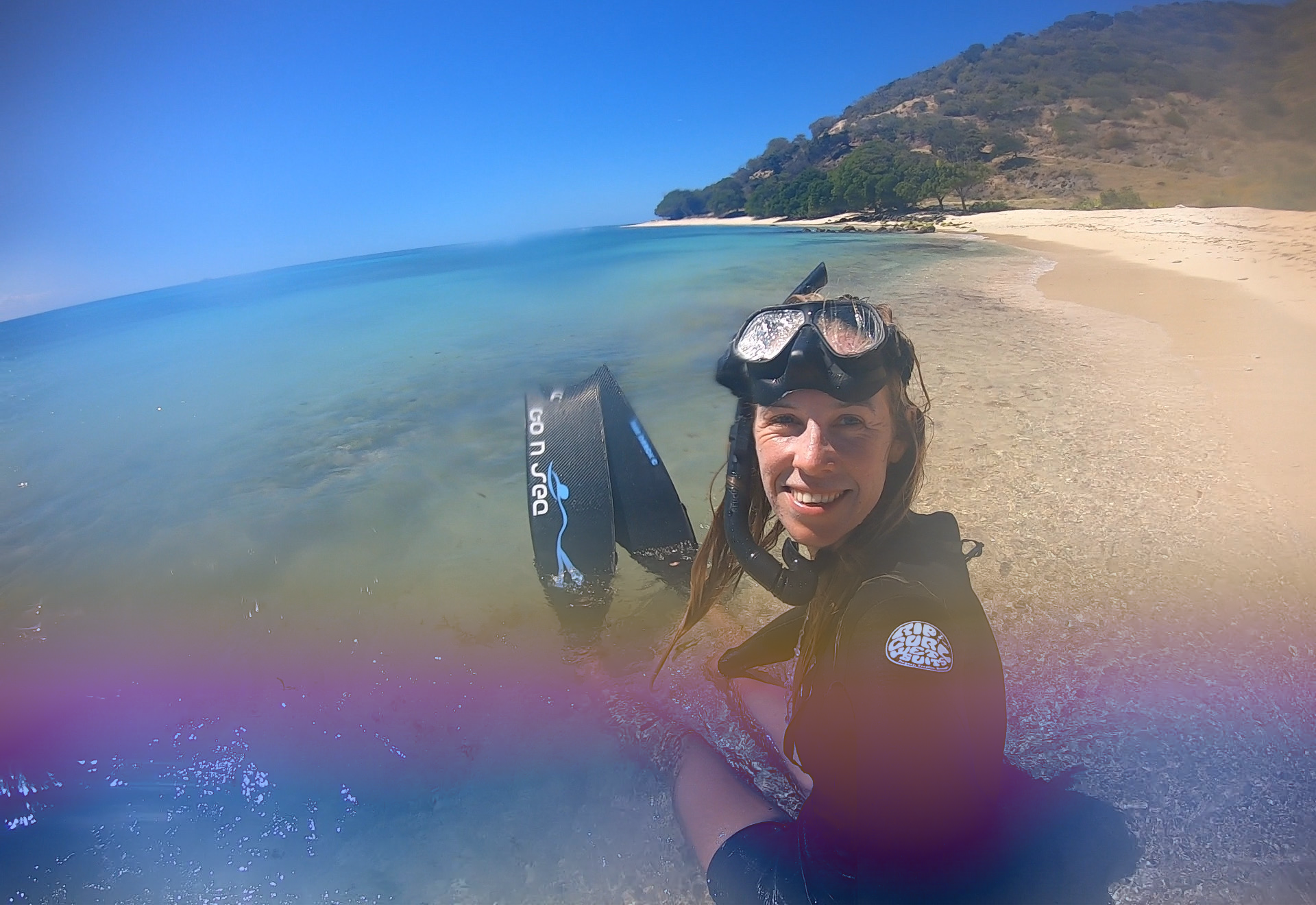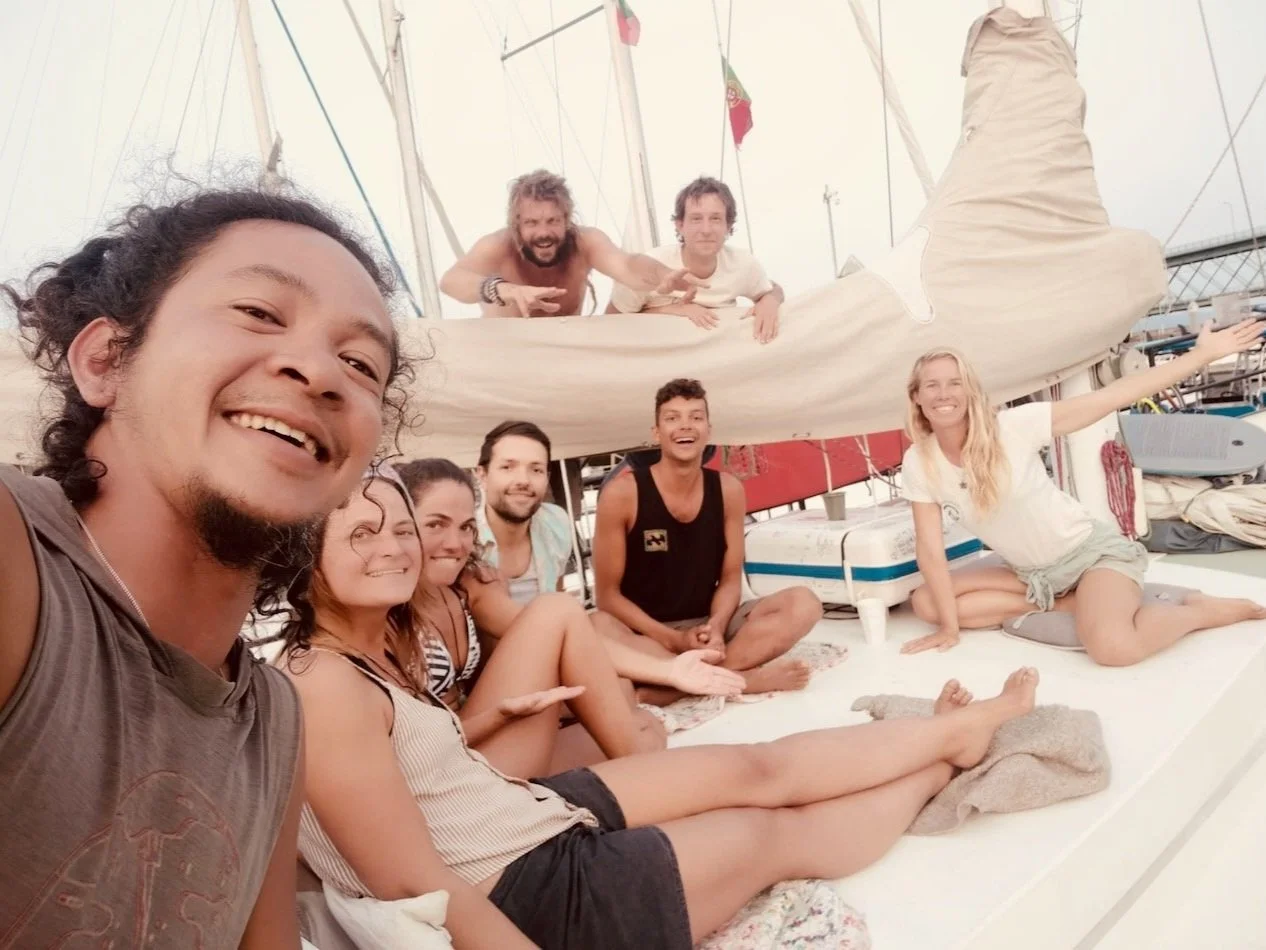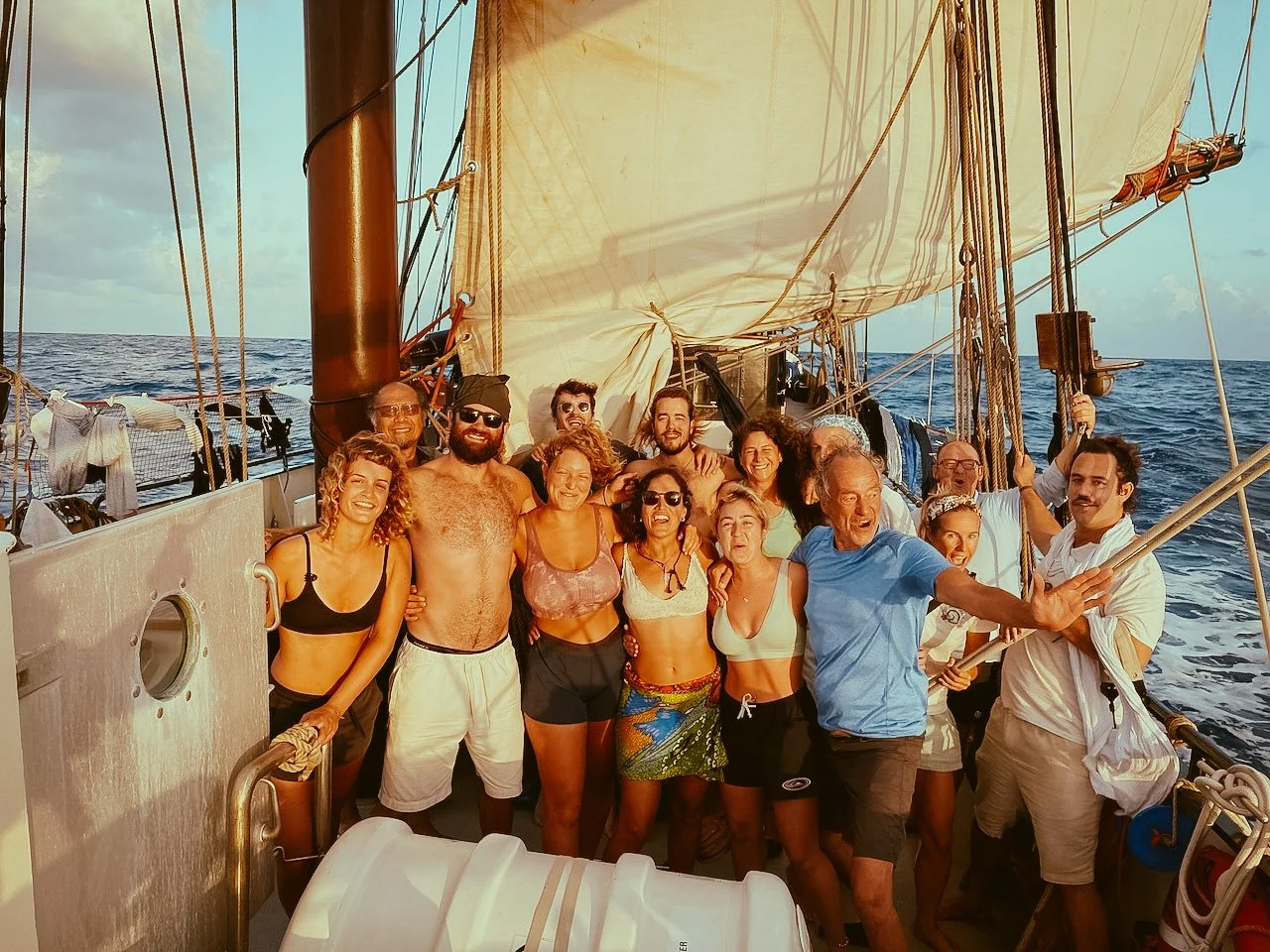Answering The Call Of The Ocean
Suzanne van der Veeken is creating real solutions with her network Ocean Nomads
Words by Imogen Lepere. Images by Ocean Nomads
Born in the landlocked village of Bavel, southern Netherlands, Suzanne van der Veeken was not obviously destined for ocean life. However, in 2012 at the age of 29, she answered a Gumtree advert offering passage in exchange for work on a sailing boat in Australia. “I got terribly seasick but was completely hooked all the same. I’d already been living out of a backpack for 10 years by that point, but this felt like such a purer way to travel. It was so slow, so considered.”
Since then, she has hitched a ride on 50 vessels and clocked up more than 30,000 nautical miles, at times living more on water than land. However, arguably her most significant journey to date was her first Atlantic crossing. In 2014, she travelled from the Canary Islands to the Caribbean and began to really comprehend the scale of the crisis facing our oceans.
“I took a water sample every 200 miles and sent it off to a lab for analysis,” she says. “Every single one contained microplastics.”
Her response? Ocean Nomads, an online support network for impact-driven ocean adventurers and changemakers. “You’re not just living with nature when you’re sailing, you’re literally ruled by it, which is why sailors are so aware of the changes that are happening within our climate. We’re on the front line and know we need to team up if our lifestyle is going to continue to be sustainable.” As well as enabling connections between like-minded travellers, Ocean Nomads links members with various conservation projects, hosts think tanks and beach cleans, contributes to ocean research and provides education on how to provision in an ethical way, for example by supporting remote communities who don’t normally reap the economic benefits of tourism.
Although it remains a small startup, Ocean Nomads is growing “slowly but steadily”, says van der Veeken, a pace she’s pretty happy with. There are currently more than 300 members, including 70 who own their own vessels and are keen to offer rides. “My inbox is exploding with calls for tips or support from people who are interested in sailing. Over the years, I have set up numerous sailing Facebook pages and they’re all getting dozens of new members every day.” The Ocean Nomads Facebook page has 2,200 members, while Atlantic Ocean Crew (also founded by van der Veeken) is up to 12,100. “What’s really noticeable are the amount of first-timers. It seems that sailing is appealing to a far broader audience, and many of them cite sustainability as a motivating factor.”
Reconnecting with nature means taking responsibility
Helping new people connect with the ocean is central to van der Veeken’s vision of the future. “I’ve come to realise how disconnected from nature we are in our daily lives and I believe this is one reason why people are so unwilling to take responsibility for their own role in the climate crisis,” she muses. “Sure, we’ve all seen reports on the news about islands made of plastic, beached whales and turtles who’ve choked on straws, but it feels so intangible when it’s far away. When you sail, you see this stuff first hand. I’ve swum through a disco of microplastics in the Azores and am haunted by a multi-day trip where we expected to live off fresh fish but only caught plastic bags.”
She continues: “I want to help people get out there and see for themselves the good, the bad and the ugly, because if you don’t experience it yourself and talk face-to-face with those whose lives are already being impacted, it doesn’t really get into your heart. I believe in the cumulative impact of small personal actions. For example, the first time I saw a plastic bottle at a remote anchorage, I suddenly realised it could easily be mine! I’ve thrown away countless bottles in my time – since sailing I understand that there is no ‘away’.”
How to become a safe & effective ocean explorer
Published in 2017, van der Veeken’s book, Ocean Nomad – The Complete Atlantic Sailing Crew Guide: How To Catch A Ride To Contribute To A Healthier Ocean includes tips for finding a boat trip, as well as essential knowledge on routes and 75 actionable ideas for contributing to a healthier ocean.
“For solo travellers, and particularly women, safety is a concern,” she says, remembering one ill-fated voyage through the Canary Islands in 2014. “I jumped on board in La Gomera and immediately things didn’t feel quite right. The captain wasn’t very experienced and we didn’t have nearly enough drinking water.” Now, she always recommends travellers to have a clear dialogue, stating expectations on both sides before agreeing to join a ship – and if the aim is to do an offshore crossing, to try some coastal sailing first. “Ultimately, intuition is very important – as it is with all types of adventure travel.”
For would-be sailors who don’t feel comfortable travelling solo, Ocean Nomads organises expeditions aboard a 36-metre schooner built in 1902 – ‘’nothing’s more sustainable than reusing what we already have” – with the aim being that each of the 14 passengers will have enough hands-on experience to become a competent crew member by the end of the trip.
Weighing up the pros and cons of sailing
Although boats are generally accepted as providing a low-carbon alternative to flying, the reality is more complicated. A yacht with a crew of five that takes several weeks to make a journey that an aeroplane carrying several hundred people could make in a few hours is creating more emissions per person for the distance travelled. “The aim is becoming a confident enough sailor to not use the motor unless you really have to, and we have a big focus on teaching people how to maintain their vessel in an eco-friendly way.”
That said, van der Veeken feels that one of the reasons sailing is such an ethical form of travel is the potential to support the economies of places that are too remote to reap the benefits of conventional tourism. “As sailors, we can contribute greatly to some of the world’s most far-flung places. Take the Tongan islands of Vava'u, where passing boats provide the lion’s share of locals’ income.”












